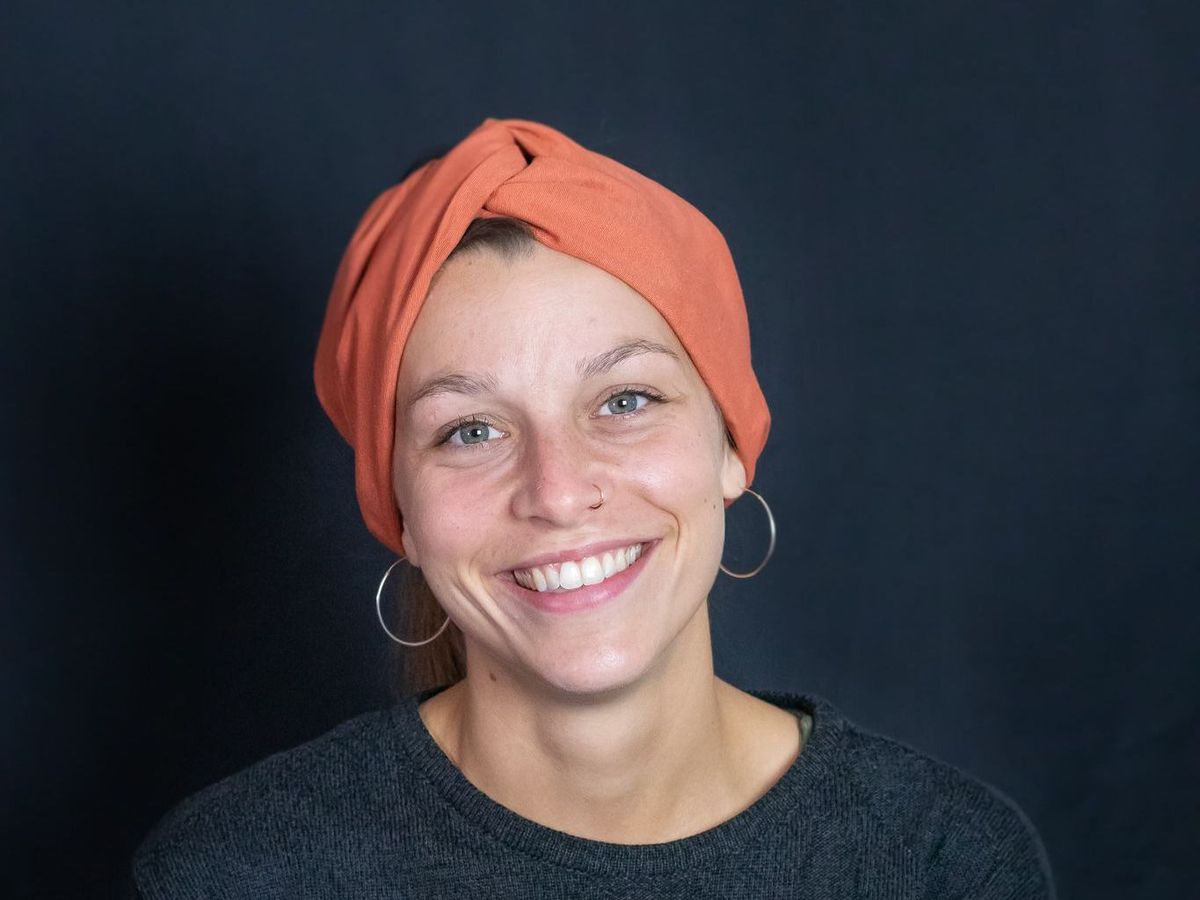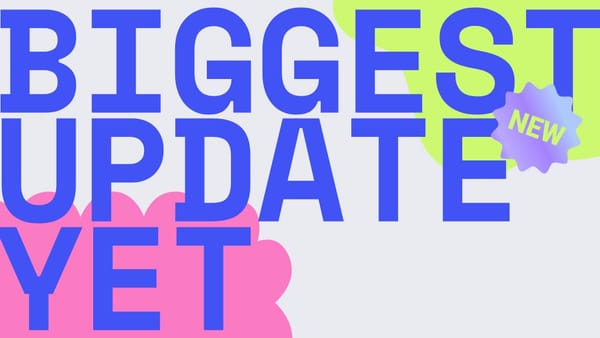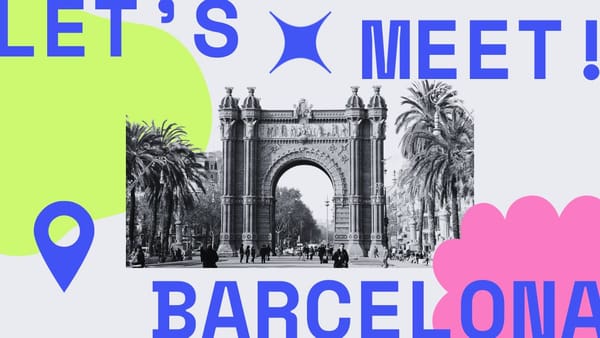Meet Laura Guntrum
Laura is a peacebuilder and research associate at the Technical University of Darmstadt.

Laura is a peacebuilder and research associate at Science and Technology for Peace and Security (PEASEC) at the Technical University of Darmstadt. Generally, her research interest includes peace, conflict studies (e.g. the transnational Costa Rican solidarity movement in Nicaragua), and the use of technology in protest movements and conflicts. Laura worked as a freelancer for several NGOs, focusing on sustainability and justice, and has completed a training as a peace specialist at the Forum for Civil Peace Service (ZFD). Currently, she is part of the working group "Ethics and Safety", initiated by the Leibnitz Institute. Laura has lived in Germany 🇩🇪, Canada 🇨🇦, Dominican Republic 🇩🇴, Costa Rica 🇨🇷, and Spain 🇪🇸.
What's your biggest question at the moment?
It is hard to say, since a multitude of interconnected questions trouble my mind…What might the world look like if a universal recognition of our shared humanity and our common needs were widespread?
Who inspires you, and why?
I find my inspiration in the dedication of numerous individuals and collectives that are committed to the ongoing pursuit of justice, rather than singling out a sole source of inspiration.
Generally, human right defenders inspire me profoundly because they embody unwavering determination in their relentless pursuit of justice, human rights, and the aspiration to make the world a better place.
Their tireless efforts, often in the face of adversity and resistance, reflect a commitment to positive change.
Peacebuilding
What initially sparked your interest in your field?
I got interested in the field of digital peacebuilding since we live in a globalized world where technology is ubiquitous. It is evident that many technological advancements are often tailored to meet the technical requirements of individuals, often living in countries of the so-called “Global North”. My objective was to explore how those experiencing the direct repercussions of conflicts utilize technology as a tool for their peacebuilding endeavors. I aimed to uncover their perspectives on the advantages and disadvantages of this technology and to identify pathways for the adaptation and development of technology to support their peacebuilding efforts.
I think we do have the opportunity to adapt and develop technology that support peacebuilders in their peacebuilding attempts.
As technology continues to evolve rapidly, how do you see the landscape of digital peacebuilding changing in the next 5-10 years?
I don't really know… but my hope is that we continue to develop co-design approaches, devise effective strategies for mitigating hate speech and misinformation, and cultivate a more secure digital environment.
Can you share examples of successful digital peacebuilding initiatives or strategies that have had a significant impact?
Considering my research focus on Colombia, I can only draw from the impressions I've gathered over the past two years. In Colombia, I've observed numerous inspiring examples of how ICTs are harnessed for peacebuilding. Various NGOs have pioneered the development of
- podcasts (e.g. FIPCAST by "Fundación Ideas para la Paz"),
- applications for violence monitoring (e.g. Movilizatorio's Activa Buenaventura),
- and tools to detect escalating violence against specific groups by analyzing social media content (e.g. GlobalGiving's Xenophobia Barometer in Colombia).
They've also organized online meetings to facilitate dialogues between people from diverse regions who wish to talk about their concerns. In regions of Colombia with limited connectivity, innovative applications have been designed to partly operate offline. In some cases, even larger projects, such as the Colombian Truth Commission's digital platform Transmedia, have been preserved on CDs and distributed to communities with limited internet access. It's worth noting that these initiatives have far-reaching impacts that transcend the digital realm, as the boundaries between the digital and physical worlds are increasingly blurred.
Generally, I emphasize the significance of simplifying technology and tailoring it to the unique requirements of every individual. It's impractical to employ technology that people cannot use due to various factors, including limited connectivity or insufficient memory capacity.
How can individuals and communities actively contribute to digital peacebuilding in an era of digital interconnectedness and information sharing?
I think one important aspect is to counter violent content and to create safer spaces for everyone. It would be helpful to actively report and counter hate speech and harmful content on digital platforms such as X. Communities can collaborate to monitor and address the spread of hate speech, which can often be a driver of violence.
Both individuals and communities can foster digital competence and critical thinking skills within communities to help people navigate the digital landscape effectively and securely.
How can digital peacebuilding intersect with other societal issues, such as social justice, environmental sustainability, or economic equity, and what collective efforts can address these intersections?
I personally see many intersections: For instance, the extraction of rare earths and metals vital for technology production is intricately linked to concerns of violence, exploitation, and human rights violations (e.g., coltan in DRC). The energy consumption of our servers/ technological devices and energy sources also raise environmental and social considerations, highlighting the need for a change and thinking more in sustainability and justice.
When thinking about social justice, I want to name the ongoing issue of data colonialism and the influence exerted by certain companies (such as Meta) that provide free services while seeking access to personal data.
When peacebuilders opt for less data secure applications, they become more vulnerable to digital surveillance, hacking, and related risks. This vulnerability is especially concerning in sensitive contexts, where it can pose significant harm.
These are just a few examples... the list is long!
Addressing these challenges demands interdisciplinary collaboration to fully grasp their intricacies. To foster this collaboration, there is a need for open and critical spaces for dialogue, as well as increased funding to support the establishment of such spaces.
What is the most important lesson you've learned throughout your journey so far?
I've come to understand the profound complexity of our world and the vital importance of listening to others to understand their perspectives.
In recent years, I've increasingly recognized the pervasive impact of power imbalances, highlighting the necessity of forging alliances to collectively address the patriarchal and capitalist structures that define our global landscape.
What advice would you give to someone who wants to follow a similar path or do work similar to yours?
Do not give up, seek out allies (very important!!), and maintain a critical mindset. Furthermore, I think it is very important to take care for yourself and to engage in activities that bring you joy.
Personal
What's your favorite way to unwind and relax when you're not working?
I enjoy spending time in the mountains or by the sea without looking at my phone much. Given that this is mainly feasible during vacations, I like doing sports and meeting friends on a daily base.
What's your go-to comfort food that never fails to put a smile on your face?
Plant-based gummy candy from Katjes 🙂
What's a place on the internet that inspires you?

Do you have any podcast recommendations?
FIPCAST, the podcast of Fundación Ideas para la Paz (FIP). It analyzes the challenges of peacebuilding in Colombia, the dynamics of conflict and violence, and more (in Spanish):
Where can we connect with you?
Laura's contact page ↗ | Send Laura an email (PGP) ↗
See more featured community members
Meet other fascinating folks in responsible tech, digital rights, and peacebuilding, and learn from their valuable insights:







